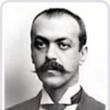Happiness, as such
(Book)
F GINZU
1 available
Copies
| Location | Call Number | Status |
|---|---|---|
| Central - Adult Fiction | F GINZU | Available |
Description
More Details
Notes
Subjects
Similar Titles From NoveList
Similar Authors From NoveList
Published Reviews
Publisher's Weekly Review
This magnificent posthumous novel from Ginzburg (1916-1991), set in the early '70s, is told almost entirely through a series of letters from one disconnected Italian family member to another. At the center of the epistolary drama is Michele, the son who has fled Italy for England. Michele's mother, Adriana, constantly worries about his whereabouts and well-being. Michele's sisters, meanwhile, must look after their mother in the wake of their father's death. A prostitute named Mara crosses paths with the other characters and writes to Michele as she moves from temporary living situation to temporary living situation with a baby that may or may not be Michele's . Michele eventually tells his sister that he is getting married in England. What can his mother do from afar? As she worries, she tells him she "wish[es] you happiness, if there is such a thing as happiness." This is a riveting story about how even when a family drifts apart, the bonds of blood relations supercede the deepest disagreements. It's also proof that Ginzburg is an absolute master of the family novel. Like Lucia Berlin and Clarice Lispector, Ginzburg may finally receive the recognition she so richly deserves. (June) © Copyright PWxyz, LLC. All rights reserved.
Kirkus Book Review
A young man flees to England, leaving his family in shambles behind him.Michele is the only son of an Italian family. His parents are divorced, his sisters grown. It's 1970, and Michele may or may not be involved in some sort of radical politics. He may or may not be the father of a newborn baby. In any case, he's just taken off for England, leaving everyone else behind. In the latest installment of Ginzburg's (Family Lexicon, 2017, etc.) oeuvre to appear in English, it is Michele's absence that drives the novel and each of its self-involved charactersMichele's mother, Adriana; his sister, Angelica; friend Osvaldo; and Mara, the young woman whose baby might be his. The novel is a swiftly moving blend of dialogue and letters. "I doubt you'll come over for my birthday," Adriana writes Michele, "because I don't think you remembered it." Adriana's letters can be passive-aggressive and self-aggrandizing, but at the same time, Ginzburg has made herand all the othersinto a nuanced, sympathetic character. Some of the best scenes involve Mara, who, with baby in tow, is a flighty mess: perpetually broke, unemployed, and disorganized, she relies on the people around her to get her through. And she's hilarious. "Your sister Angelica came to see me," she writes to Michele. "She gave me money. Sixty thousand lire. I can't do anything with sixty thousand lire, but it was a nice gesture." As a whole, the novel speaks to Ginzburg's remarkable range as a writer: She could and did write deeply moving works about the Second World War, which she survived, but she could also write comically. Beneath the currents of humor and wit is a subtle work of insight and feeling.Another masterpiece from one of the finest postwar Italian writers. Copyright Kirkus Reviews, used with permission.
PW Annex Reviews
This magnificent posthumous novel from Ginzburg (1916–1991), set in the early '70s, is told almost entirely through a series of letters from one disconnected Italian family member to another. At the center of the epistolary drama is Michele, the son who has fled Italy for England. Michele's mother, Adriana, constantly worries about his whereabouts and well-being. Michele's sisters, meanwhile, must look after their mother in the wake of their father's death. A prostitute named Mara crosses paths with the other characters and writes to Michele as she moves from temporary living situation to temporary living situation with a baby that may or may not be Michele's . Michele eventually tells his sister that he is getting married in England. What can his mother do from afar? As she worries, she tells him she "wish you happiness, if there is such a thing as happiness." This is a riveting story about how even when a family drifts apart, the bonds of blood relations supercede the deepest disagreements. It's also proof that Ginzburg is an absolute master of the family novel. Like Lucia Berlin and Clarice Lispector, Ginzburg may finally receive the recognition she so richly deserves. (June)
Copyright 2019 Publishers Weekly Annex.Reviews from GoodReads
Citations
Ginzburg, N., & Proctor, M. (2019). Happiness, as such . New Directions Publishing Corporation.
Chicago / Turabian - Author Date Citation, 17th Edition (style guide)Ginzburg, Natalia and Minna, Proctor. 2019. Happiness, As Such. New York: New Directions Publishing Corporation.
Chicago / Turabian - Humanities (Notes and Bibliography) Citation, 17th Edition (style guide)Ginzburg, Natalia and Minna, Proctor. Happiness, As Such New York: New Directions Publishing Corporation, 2019.
Harvard Citation (style guide)Ginzburg, N. and Proctor, M. (2019). Happiness, as such. New York: New Directions Publishing Corporation.
MLA Citation, 9th Edition (style guide)Ginzburg, Natalia., and Minna Proctor. Happiness, As Such New Directions Publishing Corporation, 2019.
































